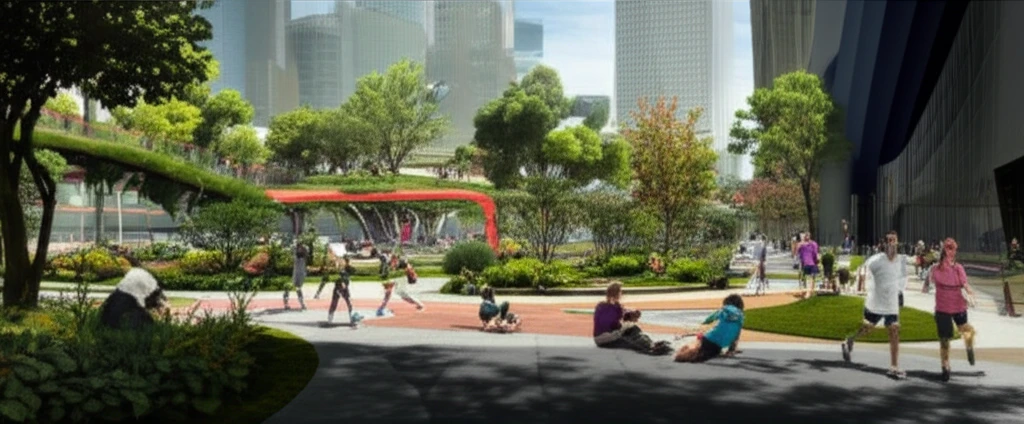
Unlock Your City's Potential: How Urban Parks Boost Health and Well-being
"Discover the surprising link between green spaces and a healthier, happier you – plus, practical tips for maximizing your park's benefits."
In today's fast-paced urban environments, finding ways to prioritize health and well-being can feel like an uphill battle. Sedentary lifestyles are increasingly common, contributing to a range of health issues from heart disease to mental health challenges. Yet, amidst the concrete and steel, cities hold a powerful, often overlooked resource: urban parks.
These green spaces are more than just patches of nature; they are vital hubs for promoting physical activity, reducing stress, and fostering social connections. Research consistently demonstrates that accessible urban parks can significantly enhance the health and quality of life for city dwellers. They offer a sanctuary, a place to reconnect with nature, and an opportunity to prioritize well-being without leaving the city limits.
This article delves into the profound connection between urban parks and public health, drawing on recent research to illustrate the numerous benefits these spaces provide. We'll explore how parks encourage physical activity, improve mental health, and contribute to overall community well-being. Additionally, we'll offer practical tips for maximizing the health benefits of your local parks and advocate for the importance of investing in these invaluable urban assets.
Why Urban Parks are Essential for a Healthy City

Urban parks play a pivotal role in fostering healthier communities, offering a wide array of benefits that extend far beyond simple recreation. These green spaces serve as accessible venues for physical activity, mental relaxation, and social engagement, all of which are crucial for overall well-being.
- Boosting Physical Activity: Parks provide readily available spaces for walking, running, sports, and other forms of exercise, combating sedentary lifestyles and promoting cardiovascular health.
- Enhancing Mental Well-being: Studies show that spending time in green spaces reduces stress, anxiety, and depression, offering a much-needed respite from the pressures of urban life.
- Fostering Social Connections: Parks act as community hubs, providing opportunities for social interaction, community events, and a sense of belonging.
- Improving Air Quality: Green spaces help to filter air pollutants, contributing to cleaner, healthier air for urban residents.
- Providing Access to Nature: Parks offer a vital connection to the natural world, which has been shown to have numerous psychological and physiological benefits.
Investing in a Healthier Future Through Urban Parks
Urban parks are not merely recreational amenities; they are essential components of a healthy and thriving city. By prioritizing the development, maintenance, and accessibility of these green spaces, we can create communities that support physical activity, mental well-being, and social connection for all residents. As urban populations continue to grow, the importance of investing in urban parks will only become more pronounced. Let's work together to unlock the full potential of our city's green spaces and build a healthier future for generations to come.
